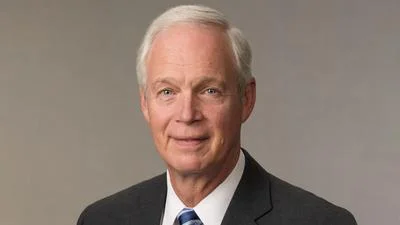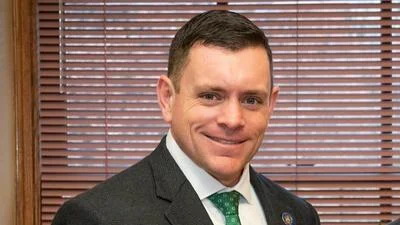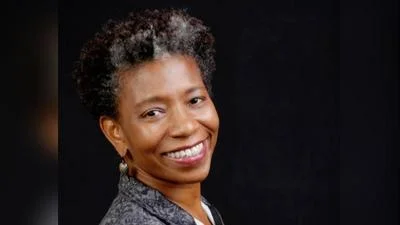University of Wisconsin - Milawukee issued the following announcement on June 6.
Milwaukee chemistry professor and graduates of his lab are helping two Wisconsin companies produce a vital material that was until recently available only from foreign sources.
The material is molybdenum-99, the parent of technetium-99m, the most widely used radioisotope in the world for diagnostic medical imaging, according to UWM Chemistry Professor Mark Dietz. (The materials are often abbreviated as Mo-99 and Tc-99m.)
About 10 years ago, after repeated disruption to supplies of Mo-99 from abroad, the Department of Energy began to encourage the development of new approaches to the production of this critical radioisotope in the U.S.
Two Wisconsin companies – NorthStar Medical Radioisotopes in Beloit and SHINE Medical Technologies in Janesville – took up the challenge of producing the needed Mo-99 domestically. (Foreign companies were using the raw material from highly enriched, reactor grade uranium, which raised some concern about nuclear proliferation.)
However, the companies needed chemists who were skilled in separations involving radioactive materials. Over the last four years, five graduates of Dietz’s research group, all trained in this highly specialized work, have been hired by these two companies, one on a temporary basis and four others permanently – two by each company.
“UWM and its graduates have contributed to Wisconsin employers’ ability to solve an issue of national importance,” Dietz said.
Millions of medical imaging procedures
The medical isotope derived from Mo-99 is the workhorse of nuclear medicine. It is used in more than 40 million medical imaging procedures each year for heart patients and cancer diagnosis.
Cory Hawkins, a UWM alum who now works for the therapeutics division at SHINE Technologies, says it is fulfilling work. Hawkins’ division is focused on production of lutetium-177 for cancer-targeted radiotherapy.
“It makes me feel good that we are developing diagnostics and therapeutics that can help the critically ill and that we can also fill in a supply gap,” Hawkins said.
SHINE has a four-phase vision to build a profitable business and ultimately bring nuclear fusion power to market, he added. The current phase 2 involves radiopharmaceutical production.
Fascinated by nuclear science
Hawkins, who grew up in the state of Oregon, had an interest in chemistry and nuclear science from an early age. He was fascinated by articles on the atomic age in a set of encyclopedias in his parents’ garage.
When he arrived at UWM as a graduate student, he heard about Dietz’s lab at a chemistry department event. “It just went on from there. I joined his group and hit the ground running on research and didn’t look back.”
He eventually went on to earn his doctorate in chemistry, a postdoc at University of California- Irvine and taught for four years in Tennessee before returning to Wisconsin and joining SHINE.
Chemistry is favorite subject
Another UWM graduate, Mohammed Abdul Momen, who also works for SHINE, came into the field because he was interested in environmental issues and the safe handling of nuclear materials.
Momen grew up in Bangladesh, where chemistry was his favorite subject in school. After doing his undergraduate work in Bangladesh, he eventually gravitated to UWM. Friends had recommended the university, and Dietz’s lab fit with his interest in applied chemistry.
He learned valuable skills.
“It prepared me for learning about separation processes and the kind of job I have now,” Momen said. “One important thing is Dr. Dietz’s skill set. He is very well-known radiochemist and so helpful to his students. Everybody in the field knows him.”
Teamwork and collaboration
James Wankowski said that the work he did in Dietz’s lab was more academic than what he does now at NorthStar Medical Radioisotopes, a product-oriented and highly regulated business. But he uses the teamwork and collaboration stills he learned at UWM every day.
“When I was first here, this was just a small start-up. I had to wear a lot of different hats,” he said. The company has grown from fewer than 75 employees to more than 250.
“This is cutting-edge work. We’re paving a path and walking down it.”
Television inspired his interest in chemistry in his younger days, Wankowski said. He loved shows like “CSI: Crime Scene Investigation” and went to Carroll University with the idea of getting a degree in that field. However, when he found jobs were scarce, he branched out to follow interests in inorganic chemistry and analytical chemistry at UWM, where he worked in Dietz’s lab and earned his doctorate in 2017.
NorthStar has a focus on developing and creating products in an environmentally sound way, and that’s an important part of Wankowski’s work.
“My project is essentially taking this critical and expensive raw material and helping us re-use it to benefit our customers and the patients they serve.”
Valuable skills
Kevin Wolters, who completed his doctorate at UWM in December 2021, worked in Dietz’s lab and took a long-term temporary position with SHINE Technologies for two and a half years with his professor’s recommendation.
He eventually took a position at Sterling Pharma Solutions in Germantown that involves helping develop drugs. He completed his doctoral degree on weekends while working there. While he’s not directly working with radioisotopes now, Wolters said he feels his experiences at UWM prepared him for his current job.
“It helped a lot. One thing Dr. Dietz taught us was to be hands-on and self-sufficient. That really helped me develop as a scientist,” Wolters said.
Hawkins appreciated the teamwork and the opportunities to do presentations.
“Other than the technical aspect, there was the discipline and networking. UWM gave me the opportunity to work with a diverse population of students and staff, and that has really helped me in my career.”
Research as an undergrad
Michael Kaul was exposed to the research as an undergraduate at UWM. “I had always been fascinated by radiochemistry, so when I learned more about his research and discovered there was access to a radiation lab at UWM, I pursued a SURF grant to explore this field of research more.”
He went on to pursue a doctorate in the field and landed a job at NorthStar Medical Radioisotopes as a process chemist. “The opportunities that were available at UWM greatly influenced my career and gave me relevant experience to prosper in the field of nuclear medicine.”
James Harvey, chief science officer of NorthStar Medical Radioisotopes, got to know Dietz earlier in both of their careers and has stayed in touch as his firm looks to recruit researchers for its cutting-edge work.
“We’re very impressed with the graduates who have come out of Dr. Dietz’s lab,” he said.
“They have the skill sets we need in advancing radio imaging manufacturing. They’re well-rounded and hit the ground running.”
Original source can be found here.






 Alerts Sign-up
Alerts Sign-up